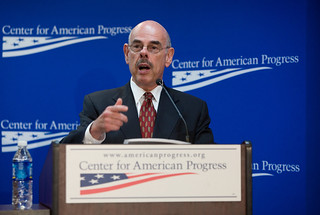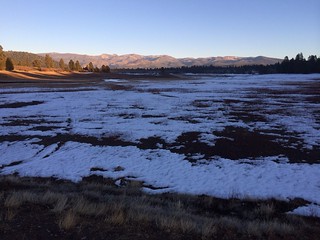 Dan Shea’s Aunt Kay was 83, vibrant and healthy in 2011, when she suffered terrible injuries in a head-on accident. Kay spent five months in the hospital rehabilitating and being repaired with so many metal parts that the family dubbed her “Iron Kay.”
Dan Shea’s Aunt Kay was 83, vibrant and healthy in 2011, when she suffered terrible injuries in a head-on accident. Kay spent five months in the hospital rehabilitating and being repaired with so many metal parts that the family dubbed her “Iron Kay.”
Then the real fight began-one that changed Dan, a San Diego civic booster and Republican notable, into an implacable foe of insurance company tactics. He’s told Kay’s story in a short, even charming, video, “The Iron Lady,” that calmly exposes corporations trying to outwait Kay’s lifespan to preserve their profits.
Farmers and two affiliates of Nationwide have been resisting a settlement for more than two years and counting. It’s costing the corporations a bundle, but if Kay dies before their legal options run out, they’ll save a bundle. It’s a perfectly legal tactic, which Dan is determined to change. The fight is Kay’s reason for living through her pain.
Kay will never be the same: She can’t drive and can barely walk. She’s living with family and dependent on them. But she’s fully determined to get as far back to normal as possible.
Kay expected to at least recover financial independence, even after $800,000 in hospital bills. Both Kay and family of the 17-year-old boy in the truck were very well-insured by major companies. The boy was at fault, but there was no rancor between the families.
Then they encountered the insurance lawyers. It ultimately dawned on them that the insurance companies would benefit by delaying until Kay died, to make most of their liability disappear.
Kay originally did not want to sue, so Dan asked for mediation. Farmers Insurance, the boy’s insurer, agreed but stalled for months. Then the insurers offered a ridiculously low settlement–barely over half of the medical bills, much less her ongoing medical costs. Then they stalled some more and tried intimidating Kay with a long deposition about her life since adolescence.
When the case got to court in October of last year, within a few days a jury spurned the insurers’ argument that they really owed little, and awarded Kay $2.1 million dollars.
Kay hasn’t gotten a penny. The insurance companies stalled again, and on January 7 they demanded a new trial. When it’s denied, they can file for an appeal. That could string out for a year or two.
Dan Shea found that having plenty of insurance, no matter how much it costs in premiums, doesn’t mean the company will protect you when you need it. And that everything the insurers have done is within the law.
Dan and his family have the determination and resources to keep fighting, and Dan is calling on state legislators to fix these interminable delays.
The fix shouldn’t stop at auto and property insurance. There are also horrible insurance company incentives embedded in state medical malpractice law. For instance, if an infant is severely disabled by medical negligence, insurers for the doctor and hospital could have to pay millions for a lifetime of expert care.
If the baby somehow dies, its economic value dies, too. The law in California restricts dead-child lawsuits to such a low payout that grieving parents usually can’t even get a lawyer to take their case. So what incentive does an at-fault hospital or doctor have to keep that baby alive?
The same is true if the wronged patient suffers a terminal illness-why pay now if you can stall until the problem literally goes away?
We need more people with Dan’s determination to change this.
Posted by Judy Dugan, Research Director Emeritus for Consumer Watchdog.






